Getting Started in Deep-Ocean Science
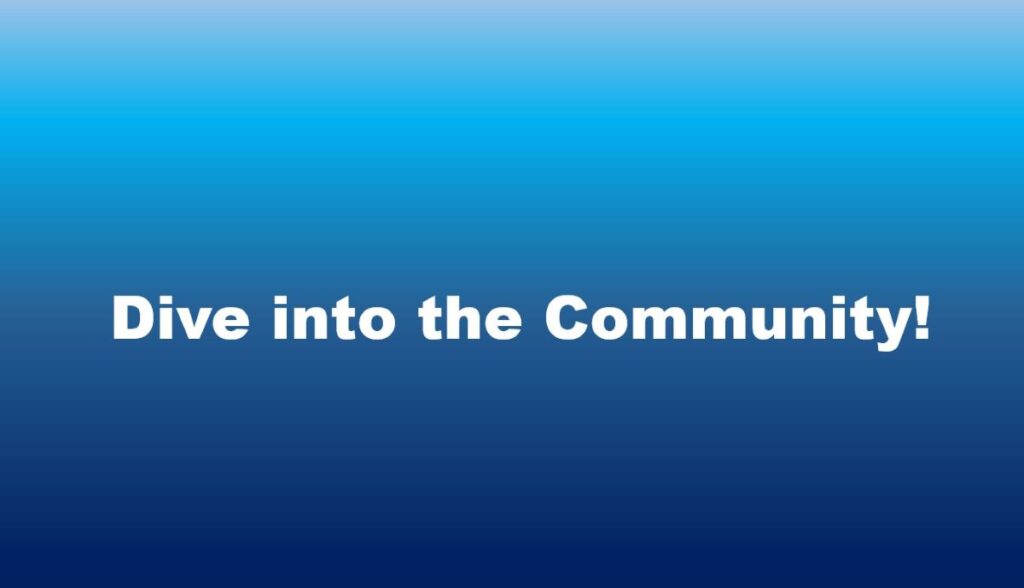
The wide range of organizations that play a part in deep-ocean science and outreach can be confusing, especially to newcomers. With this page, we hope to make things easier by highlighting key deep-ocean groups that are active now around the world. The entries below include sections for Networks, Academic Groups, Institutions and Nonprofits, Research Projects, Private Companies, and Advocacy Groups. If a group’s Core Focus interests you, read on for a short description of that group’s work. You can use these entries to find interesting research to follow, job and internship opportunities, or even experts to contact for news stories. The end of this page also includes a few educational resources for those wanting to learn more about the deep ocean.
This page is meant to be an evolving resource, so please reach out to DOSI at DOSIcomms@gmail.com if there are any groups or resources you would like to see added! If you represent a deep-ocean group and would like an entry for your organization to be changed or removed, just contact us at the email above and we will respond as soon as possible.
Networks
Deep-ocean networks rarely do primary research themselves, but their work is just as important. Networks help the individuals and groups that participate in them work together, sharing important conclusions that no member could have produced alone. Deep-ocean networks also help set research priorities, ensuring that experts are studying the questions that policymakers need answers to.
The Deep-Ocean Stewardship Initiative (DOSI)
Core focus: Using deep-ocean science to inform policy
Contact: DOSIcomms@gmail.com
Key social media: Twitter and Instagram
The Deep-Ocean Stewardship Initiative (DOSI) is a global network of experts that helps guide ocean policy. We combine the latest deep-ocean science, legal knowledge, and policy expertise into clear information for the decision-makers who need it. If you want to get involved—welcome! You’re in the right place. Experts, professionals, and students are encouraged to participate in our Working Groups on topics like deep-sea minerals, climate change, and fisheries. We also publish the weekly Deep-Sea Round-Up newsletter, which you can sign up for here to stay up to date on deep-ocean science, news, and jobs.
Challenger 150
Core Focus: Coordinating the Decade of Deep-Ocean Science (2021 to 2030)
Key social media: Twitter
Recognizing the critical need to understand our global ocean due to challenges like climate change and biodiversity loss, the United Nations has designated 2021 – 2030 as the Decade of Ocean Science for Sustainable Development. Because over 90 percent of the ocean is in the less-researched deep sea, the work of deep-ocean scientists will be especially important to achieving the Decade’s goals. Challenger 150, named in honor of the 150th anniversary of the groundbreaking Challenger expedition, is a DOSI project that coordinates deep-ocean research and training to provide “the great leaps in knowledge needed to better manage our oceans.” Because countries with developing economies “face significant barriers to participating” in crucial deep-ocean science, Challenger 150 also works to support cooperation on research projects along with training for scientists around the world. To get involved, you can reach out on the Challenger 150 website here.
The Deep Ocean Observing Strategy (DOOS)

Core Focus: Coordinating deep ocean observing experts
Contact: deepoceanobserving@gmail.com
Key social media: Twitter
The Deep-Ocean Observing Strategy (DOOS) is a community-driven, international initiative strategically aligning the deep ocean observing community toward collective solution-based science. Its working groups address global deep sea challenges at the intersection of communities and disciplines and are designed with community input to determine priority actions and leverage existing research efforts and resources. DOOS also operates the Deep Ocean Early-career Researchers (DOERs) program, a collaborative mentoring program that bring together early-career professions from across the global deep sea community.
The Crustal Ocean Biosphere Research Accelerator (COBRA)
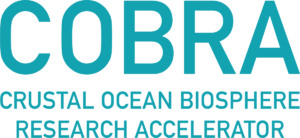
Core Focus: Accelerating research on the structure, function, resilience, and ecosystem services of the crustal ocean biosphere
Contact: cobra@bigelow.org
Key social media: Twitter
The Crustal Ocean Biosphere Research Accelerator (COBRA) is an international network “focused on the structure, function, resilience, and ecosystem services of the crustal ocean biosphere – the rocky parts of the seafloor- to inform decision-making for emergent human uses of the deep sea.” Those potential future uses COBRA is concerned with include deep-sea mining, subseafloor carbon sequestration, and more. As a “network of networks” hosted at the Bigelow Laboratory for Ocean Sciences, COBRA coordinates diverse stakeholders from academia, government, resource management, industry, and policymaking to accelerate understanding of deep-sea crustal ecosystems. To learn more and to find opportunities to engage, you can sign up for COBRA’s monthly newsletter here.
JETZON

Core Focus: Investigating the ocean’s twilight zone
Key social media: Twitter
JETZON is a UN Ocean Decade Programme that acts as an “international coordinator and focal point for Twilight Zone studies.” Because the Twilight Zone is both poorly understood and highly important, JETZON and its member projects aim to “provide the scientific understanding necessary to inform a sustainable approach to the management and conservation of the Twilight Zone Ecosystem.”
Academic Groups
Academic groups help deep-ocean researchers share their latest work with one another to improve our understanding of key subjects.
Deep Sea Biology Society

Core Focus: Sharing knowledge between deep-sea biologists
Contact: secretary@dsbsoc.org
Key social media: Twitter
Born out of meetings between academics that began in 1977, The Deep-Sea Biology Society (DSBS) is the main scientific organization focused on sharing information between deep-sea biologists. Members of the Society typically meet every two to three years for the Deep-Sea Biology Symposium, which now covers topics from taxonomy and genomics to science communication strategies.
Government Groups
These groups research and explore the deep ocean on behalf of national governments. Much of their research and resources are often available to the public.
NOAA Ocean Exploration

Core Focus: Exploring the ocean for national benefit
Key Social Media: Twitter, Instagram, YouTube
Based in: United States of America
A valuable source of deep-ocean knowledge, images, and video, NOAA Ocean Exploration is “the only federal organization in the United States dedicated to exploring the deep ocean.” NOAA OER leads deep-ocean expeditions aboard the Okeanos Explorer, providing “live video streams, online expedition coverage, training opportunities, and other research” to audiences from experts to elementary schoolers. Results from NOAA expeditions are publicly available, making them excellent resources for ocean professionals and deep-sea enthusiasts. NOAA Ocean Exploration is also known for its Explorer-in-Training Program, which offers internships for “the next generation of ocean explorers, scientists, engineers, and communicators.”
Japan Agency for Marine-Earth Science and Technology (JAMSTEC)

Core Focus: Researching marine science and technology for the benefit of Japan
Key social media: Twitter, Instagram
Based in: Japan
JAMSTEC focuses its mission on supporting Japanese society in becoming an ocean-based nation. They do this by developing new scientific and technological capabilities which contribute to the sustainable development, and responsible maintenance, of a peaceful and fulfilling global society. Accomplishing this requires exploration, so JAMSTEC works to advance research by developing an integrated and comprehensive understanding of the Ocean, Earth, and Life.
Institutions/Nonprofits
These organizations are some of the key players in deep-ocean exploration and education. If you’ve seen exciting new deep-ocean footage recently, the odds are good that it was collected by one of the groups below.
Monterey Bay Aquarium Research Institute
Core Focus: Advancing marine science and engineering to understand our changing ocean
Based in: United States of America
Key social media: Twitter, Instagram, TikTok, YouTube
A non-profit oceanographic research center, MBARI “creates and globally scales the technologies the visionary technologies required to explore, map, and understand our changing ocean.” MBARI also partners closely with the Monterey Bay Aquarium, communicating deep-ocean science using tools like the Aquarium’s new Into the Deep exhibit. You can join MBARI’s mailing list on its website. MBARI also offers 10-week summer internships each year.
Woods Hole Oceanographic Institution
Core Focus: Advancing the frontiers of ocean knowledge
Based in: United States of America
Key social media: Twitter, Instagram, Facebook, YouTube
Founded in 1930, WHOI is an “independent non-profit organization dedicated to ocean research, exploration, and education.” Its experts study many topics related to marine science and policy. Especially well known for its government contracts, WHOI operates ocean research vessels including the famous deep-ocean submersible Alvin. It also offers annual summer student research fellowships.
Ocean Exploration Trust
Core Focus: New discoveries in ocean fields paired with cutting edge education and outreach
Based in: United States of America
Key social media: Twitter, Instagram, Facebook, YouTube
Responsible for the voyages of Exploration Vessel Nautilus, OET focuses on “scientific exploration of the seafloor, collaborating with the broader research community… and sharing expeditions with explorers around the world via live telepresence.” Recordings from Nautilus expeditions are shared on its popular YouTube channel. One special feature unique to OET is that educators and potential interns can apply to join the team for a multi-week deep-ocean expedition.
Scripps Institution of Oceanography
Core Focus: Understanding our planet to find solutions to environmental challenges
Based in: United States of America
Key social media: Twitter, Instagram, Facebook, YouTube
Part of the University of California, San Diego, Scripps Institution of Oceanography has been conducting research in the deep ocean for decades. Its staff and students work on a wide range of topics, including climate change impacts, innovative technologies, and biodiversity conservation. Ultimately, the goal of their research is to “find solutions to our greatest environmental challenges.” You can subscribe to their newsletter here.
Schmidt Ocean Institute

Core Focus: Advancing the frontiers of global marine research
Based in: United States of America
Key social media: Twitter, Instagram, YouTube
Established as a private non-profit in 2009, Schmidt Ocean Institute works to understand the ocean “through technological advancement, intelligent observation, and open sharing of information.” Schmidt Ocean provides researchers around the world with access to its new research vessel Falkor (Too), helping to conduct and communicate ocean research. You can subscribe to their newsletter here.
Ocean Discovery League
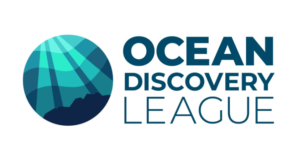
Core Focus: Developing accessible systems to broaden the community of those who explore and understand the deep sea
Key social media: Twitter, LinkedIn
Historically, deep-ocean research has been extremely expensive. Led by National Geographic Explorer Dr. Katy Croff Bell, The Ocean Discovery League works to speed up deep-ocean research by growing the number of scientists and countries with the resources to participate. They pursue that goal through:
- Development of low-cost, easy-to-use systems for deep sea exploration, reducing the barriers to access of deep-sea data collection.
- Ocean artificial intelligence development, advancing underwater imagery and environmental data analysis.
- Capacity development with underrepresented communities, focusing on those who have been historically excluded from deep sea exploration and research.
You can sign up for The Ocean Discovery League’s monthly newsletter on their website.
Nekton Mission
Core Focus: Protecting the ocean, for all our planet’s life and for ourselves
Key social media: Twitter, Instagram, YouTube
Based in: United Kingdom
Working with the University of Oxford and a wide variety of other partners, the Nekton Mission explores the ocean with the goal of highly protecting at least 30% of it by 2030. Because Nekton was founded by both scientists and journalists, it gives special attention to the storytelling side of ocean science. These stories, products of the missions Nekton co-develops with host nations, are used to encourage conservation of the ocean.
REV Ocean
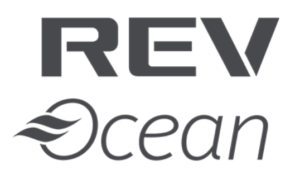
Core Focus: Ensuring “One healthy ocean”
Based in: Norway
Key social media: Twitter, Instagram, Facebook, LinkedIn, YouTube
REV Ocean is a Not-For-Profit company working to “make the ocean healthy again.” Its missions focus on “improving our understanding of the ocean, getting key stakeholders… aligned with that understanding and turning that knowledge into concrete solutions.” Key topics REV Ocean addresses include plastic pollution, climate change, ocean acidification, and overfishing. Its scientists are active in deep-ocean research, using tools like the new deep-sea submersible Aurelia.
OceanX

Core Focus: Creating a deeply engaged global community dedicated to “educating, inspiring, and protecting the oceans”
Based in: United States of America
Key Social Media: Twitter, Instagram, TikTok, Facebook, LinkedIn, YouTube
OceanX focuses on uniting cutting-edge ocean science and technology with inventive storytelling, bringing exciting findings from their explorations back to the surface. You may recognize their work from the deep-ocean segments the BBC Earth documentary Blue Planet II, which relied on OceanX and its submersibles for key footage. OceanX was also the first team to film a giant squid in its deep-ocean habitat.
UK National Oceanography Centre
Core Focus: Making sense of the changing seas, on which future human prosperity and wellbeing depend
Based in: United Kingdom
Key social media: Twitter, Instagram, Facebook, YouTube
The National Oceanography Centre of the United Kingdom, an independent self-governing organization, undertakes “world leading research in large scale oceanography and ocean measurement technology innovation.” The Centre also manages the National Marine Equipment Pool, a fleet of autonomous and robotic vehicles, along with the research ships RRS Discovery and RRS James Cook. You can subscribe to their newsletter here.
Private Companies
Some deep-ocean research is done by private companies. These groups work to answer important questions about the ocean for industry, research, and media.
Armatus Oceanic

Core Focus: Expert consulting for high profile deep-ocean projects using research, technology, and communications
Based in: United Kingdom
Key social media: Twitter, Instagram
Founded by Professor Alan Jamieson, Armatus Oceanic is especially well known for its research in the hadal zone—the deepest portions of the deep ocean. The Armatus team was “the first to film fish over 6km deep” and also holds records for discoveries of the deepest octopus and squid on record. Armatus Oceanic is especially committed to communicating the science it finds, which has led to projects like the Deep-Sea Podcast.
Research Projects
These deep-ocean projects have specific goals and often involve several groups pooling their expertise and resources.
CSIRO Biodiversity Imagery Annotation Automation Group
Core Focus: Developing techniques to automate the annotation of ocean data
Contact: Untiedt@CSIRO.au
Based in: Australia
Analyzing the huge amount of data deep-sea expeditions collect takes significant time and effort. But what if a computer could do it for you? Assembling scientists with a wide range of expertise, the CSIRO Biodiversity Imagery Annotation Automation Group focuses on developing techniques to collect quantitative data from ocean images and sound recordings. Right now, the group is focusing on improving automatic classification of deep-sea corals. Their work studying these species and their ecosystem helps provide guidance for conservation.
Dr. Elva Escobar’s Lab, National Autonomous University of Mexico
Core Focus: Understanding tropical deep ocean biodiversity
Contact: escobri@cmarl.unam.mx
Dr. Escobar, her colleagues, and her students work to understand deep-ocean biodiversity and share their findings to support conservation. Her lab also communicates with the public and has worked with artists to express ideas based in deep-sea science.
iAtlantic
Core Focus: Assessing the health of deep-sea and open-ocean ecosystems across the full span of the Atlantic Ocean
Contact: i-atlantic@ed.ac.uk
Based in: United Kingdom
Key social media: Twitter
iAtlantic aims to deliver knowledge that is critical for responsible and sustainable management of Atlantic Ocean resources in an era of unprecedented global change. Involving marine scientists from countries bordering the north and south Atlantic Ocean, this ambitious project will determine the resilience of deep-sea animals – and their habitats – to threats such as temperature rise, pollution and human activities. Central to the project’s success is the international collaboration between scientists throughout the Atlantic region, with sharing of expertise, equipment, infrastructure, data and personnel placed at the forefront of iAtlantic’s approach.
Minderoo-UWA Deep-Sea Research Center
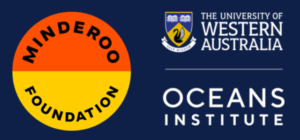
Core Focus: Exploring and mapping the deepest areas of the Indian Ocean and beyond
Key social media: Twitter
Based in: Australia
The Minderoo-UWA Deep-Sea Research Centre is a multidisciplinary seagoing team based at the University of Western Australia led by marine biologist, engineer and explorer Professor Alan Jamieson. The Centre is committed to expanding our understanding of the deep ocean by discovering new species, assessing marine biodiversity, mapping the ocean floor, and charting deep-sea habitats. They specialize in abyssal (3,000-6,000m) and hadal (6,000-11,000m) depths that represent the deepest 70% of the oceans, the most extreme marine frontiers.
Ocean Networks Canada
Core Focus: Monitoring the east and west coasts of Canada and the Arctic, collecting real-time, open data that deliver solutions for science, society, and industry
Key Social Media: Twitter, Instagram, Facebook, YouTube
ONC is a world-leading ocean observing facility hosted and owned by the University of Victoria (UVic), and managed and operated by the ONC Society, a not-for-profit established in 2007. ONC delivers ocean data from its cabled, mobile and community-based observing networks that represent an essential component of Canada’s ocean observing science capacity. Through continuous scientific observation of the ocean, ONC provides valuable data to scientists, governments, organizations, and citizens. Ocean data are archived, processed and made freely available via ONC’s data management system, Oceans 3.0.
The Ocean Twilight Zone Project
Core focus: Accelerating scientific understanding, developing new tools and technologies, and increasing awareness of the ocean Twilight Zone.
Based in: United States of America
Run by Woods Hole Oceanographic Institution and funded by The Audacious Project, The Ocean Twilight Zone Project is a six-year, $32 million program exploring the ocean’s twilight zone: “a vast, globe-spanning, and dimly lit region between about 200 and 1,000 meters beneath the ocean’s surface.” Through expeditions using new technologies, this project aims to fill critical gaps on knowledge related to this under-researched part of the planet. The results will be used to inform conservation and sustainable use of the ocean twilight zone.
Seabed 2030
Core Focus: Creating a high-resolution map of the global seabed
Contact: enquiries@seabed2030.org
Key social media: Twitter
The Nippon Foundation–GEBCO Seabed 2030 Project has one clear goal: producing “the definitive map of the world ocean floor by 2030,” which will be made available to all. Good maps of the seafloor are crucial for deep-ocean science and policy, but much of the seabed has yet to be mapped in sufficient resolution. Seabed 2030 is working to fix that by bringing together massive amounts of bathymetric data. You can join the Seabed 2030 mailing list here.
Advocacy Groups
These members of the community unite to protect the deep ocean from harm. They communicate with both policymakers and the public to spur action on key environmental challenges.
Deep Sea Conservation Coalition
Core Focus: Reducing threats to the deep sea and safeguarding its ecosystems
Key social media: Twitter, Facebook
The DSCC is a group of over 100 organizations working to protect vulnerable deep-ocean ecosystems. Advocating at many policy processes, DSCC currently focuses on “ensuring the sustainability of deep-sea fisheries and addressing the potential threat of deep-sea mining.” DSCC also works to showcase the importance of the deep ocean through events like their annual #DeepDay on social media.
Deep Sea Mining Campaign
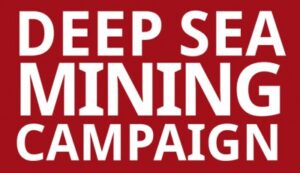
Core Focus: Seeking a ban on deep-sea mining
Key Social Media: Twitter
Coordinated by The Ocean Foundation, the Deep Sea Mining Campaign is “an association of NGOs and citizens from the Pacific Islands, Australia, Canada, and USA concerned about the likely impacts of DSM on marine and coastal ecosystems and communities.” Members of this grassroots campaign coordinate to oppose deep-sea mining through “regional policy interventions and human rights and science-based advocacy.”
Educational Resources
Want to brush up on your deep-ocean knowledge? These are some good resources to take a look at.
The Deep Ocean Education Project

A cooperative project of NOAA Ocean Exploration, Ocean Exploration Trust, and Schmidt Ocean Institute, the Deep Ocean Education Project uses resources from all three groups to teach people about the deep sea. Educators are especially encouraged to take advantage of the website’s free lesson plans on topics from bioluminescence to underwater volcanoes.
The Deep Sea Podcast
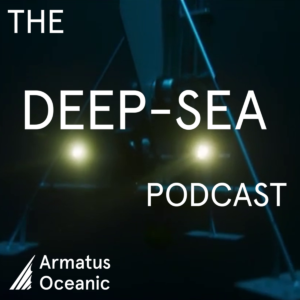
Contact: podcast@armatusoceanic.com
Key Social Media: Twitter, Instagram
Launched by Professor Alan Jamieson and Dr. Thom Linley, The Deep-Sea Podcast releases monthly episodes on topics from seamount biology to the experience of captaining ocean expeditions. The hosts’ relaxed conversations feature interviews with other deep-sea scientists, artists, writers, and more. This show also holds the record for the deepest-recorded podcast after conducting an interview inside a submersible over 10 kilometers deep. Currently, The Deep-Sea Podcast is ranked in the top 3% of the most-listened podcasts globally.

